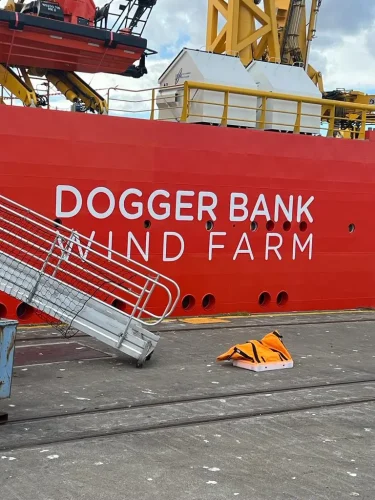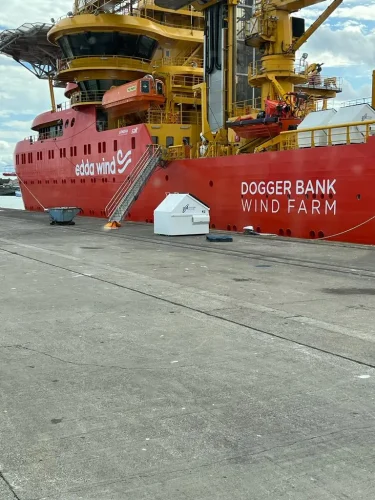Dogger Bank Windfarm, a pioneering offshore wind farm project in the North Sea, stands as a beacon of hope in the fight against climate change. Renewable energy initiatives like wind farms play a vital role in reducing greenhouse gas emissions and combating climate change. However, the environmental benefits can be further maximized by implementing eco-friendly waste management strategies. JBM Environmental Services, a leader in waste management, is pioneering sustainable waste management solutions for Dogger Bank Windfarm to ensure that waste generated during the project doesn’t contribute to climate change.
In this blog post, we will delve into how wind farms impact climate change and how JBM Environmental Services’ eco-friendly waste management practices help in reducing waste in landfills, thereby mitigating toxins, greenhouse gases, and pollution.
The Impact of Windfarms on Climate Change
Windfarms are a pivotal element of the renewable energy landscape, providing a clean and sustainable alternative to traditional fossil fuel-based power generation. By harnessing wind energy to produce electricity, wind farms significantly reduce the reliance on fossil fuels, consequently decreasing greenhouse gas emissions such as carbon dioxide and methane. This reduction in emissions is pivotal in the global effort to mitigate climate change and achieve carbon neutrality.
The positive environmental impact of wind farms extends beyond emission reductions. Through sustainable practices and effective waste management, wind farm projects can further enhance their overall contribution to a cleaner, greener planet.

Eco-Friendly Waste Management: JBM Environmental Services’ Commitment
JBM Environmental Services understands the critical role that efficient waste management plays in mitigating climate change and promoting a sustainable future. Their eco-friendly waste management approach involves diverting waste away from landfills, where it can release harmful toxins and greenhouse gases as it decomposes.
By adopting advanced recycling techniques and promoting reuse, JBM Environmental Services minimizes the waste sent to landfills. Waste that cannot be recycled is carefully disposed of in an environmentally responsible manner, further reducing the ecological footprint of the project.
Preventing Toxins, Greenhouse Gases, and Pollution
Landfills are significant sources of harmful toxins and greenhouse gases. As organic waste decomposes in landfills, it produces methane, a potent greenhouse gas that contributes to climate change. Additionally, the leachate from landfills can contaminate soil and water, causing pollution.
JBM Environmental Services’ waste management approach actively prevents these issues. By diverting waste from landfills and implementing proper waste disposal methods, they ensure that toxins and greenhouse gases are minimized, and pollution is mitigated.

JBM Environmental Services and Dogger Bank Windfarm: A Sustainable Partnership
Collaborating with Dogger Bank Windfarm, JBM Environmental Services has tailored their waste management solutions to align seamlessly with the windfarm’s sustainability objectives. They work closely with the project teams to optimize waste reduction strategies, encourage recycling initiatives, and ensure proper disposal of waste generated during various project phases.
Their waste management expertise aids in maintaining the pristine environment of the North Sea while contributing to the renewable energy goals of Dogger Bank Windfarm.
Conclusion
Dogger Bank Windfarm signifies a promising step toward a sustainable, low-carbon future. Maximizing the environmental benefits of wind farms requires a holistic approach, including responsible waste management. JBM Environmental Services is committed to ensuring that waste from this renewable energy project is managed in an eco-friendly manner, aligning with the overall goal of combating climate change.
For more information about JBM Environmental Services and their dedication to eco-friendly waste management for wind farms, please visit their website. Discover how their sustainable practices contribute to a cleaner, greener planet.
Tel:0333 335 5349 Email: [email protected]
